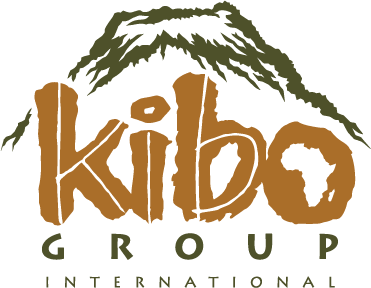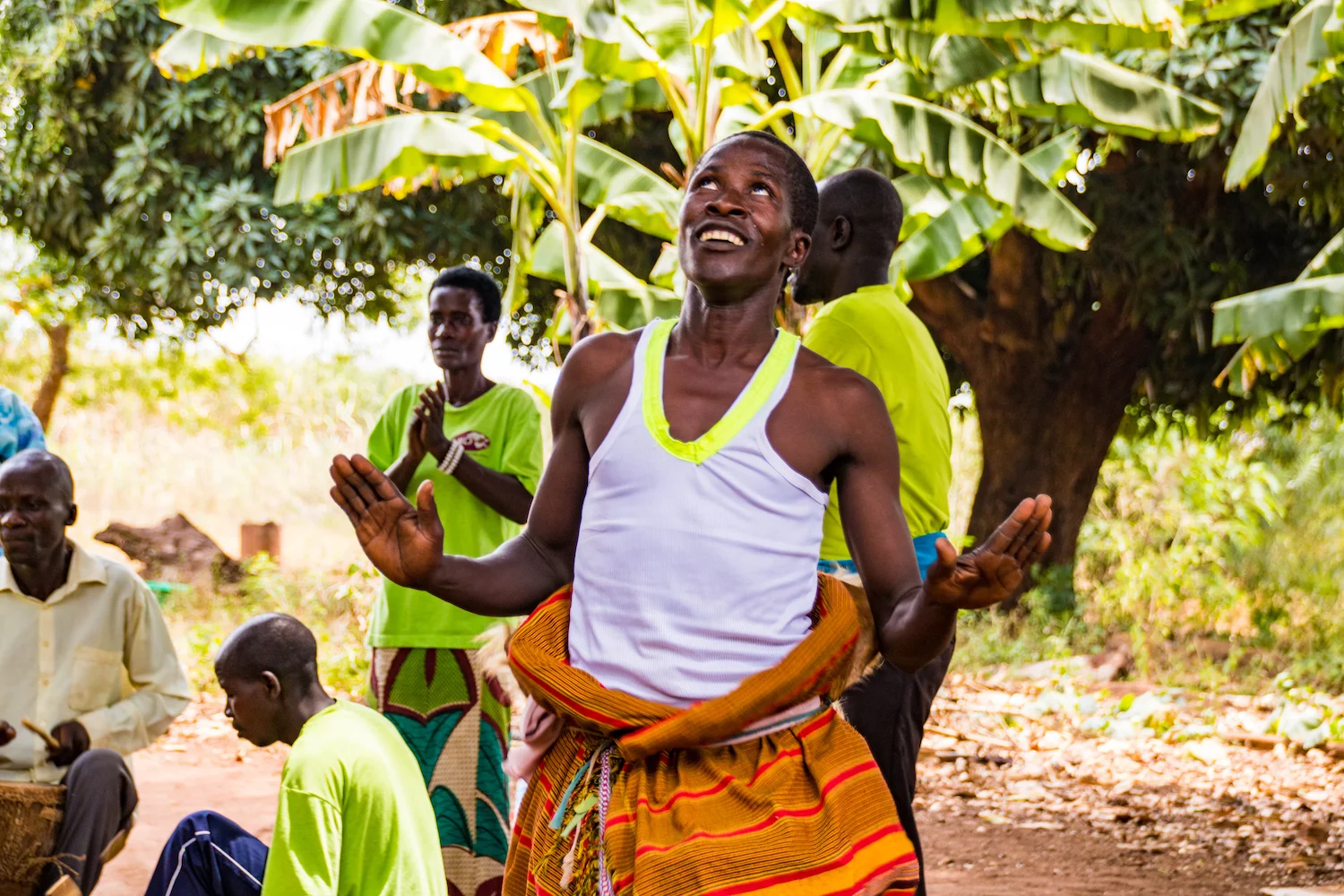"Knock knock! Who's there?": How humor and dance help save lives.
Convincing communities in rural Uganda to get serious about sanitation and hygiene can be really difficult for our Water, Sanitation, and Hygiene staff. Practicing proper sanitation can take a lot of time, energy, and money, and talking about unhealthy sanitation practices, like defecating in the open, can be (understandably) embarrassing.
Luckily, our staff has a secret weapon: humor.
Anybody tasked with promoting sustainable behavior change knows that laughter and dance are far better teachers than guilt or threats.
Whenever our WASH staff has a triggering session, we usually hire a local drama group to attract people to the meeting, keep the community members engaged, and even help the staff teach sanitation and hygiene.
In an oral culture like Busoga, drama groups are important for entertainment and information. The drama groups we hire perform skits and songs that express the importance of sanitation and the devastating effects of poor hygienic practices.
But instead of focusing on sadness and shame, they use humor to get people thinking and feeling about proper sanitation and hygiene.
If it’s a good drama group (like this one from our triggering session in Naibowa village), they will keep the crowd engaged even as we address serious issues, like children dying because of open defecation.
Sanitation and hygiene isn’t a joke. It can mean health or sickness, life or death. But our WASH staff also knows that people don’t usually respond well to guilt. Making a serious, embarrassing, and sometimes painful subject fun and humorous keeps people engaged throughout the meeting. That means they are more likely to change their behavior, and more lives will be spared.
Even as the crowd is laughing, they are learning important information about how sanitation and hygiene causes health problems in their families and their communities. When people feel like they are dignified, respected, and loved, they are much more likely to listen to new information and change their behavior in response.
Our WASH staff doesn’t shy away from difficult, painful, or even contentious conversations when they are necessary. But they also know that Jesus corrected people with grace and love, and that is what we are called to do, too.
The drama group’s performances pique people’s interest in sanitation and hygiene. By the time our WASH staff stands up to share how to practice proper sanitation and hygiene, the village is engaged and excited because they have embraced why it’s so relevant to their lives and their families.
To empower and inspire the community members further, the WASH staff gives them a few shovels and pickaxes to share to make it financially easier for them to start building their latrines. At the end of the meeting, people aren’t walking away burdened and ashamed with heads hung low. They are singing and dancing in celebration because they have the knowledge and tools they need to solve their problems and help their families thrive.
Communal empowerment through love and a lot of joyful laughter. That’s #TheKiboWay.










